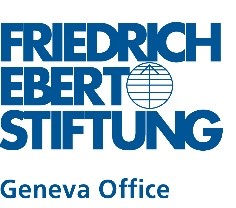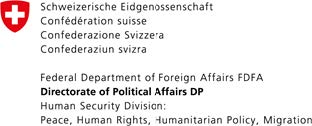The Role of UN Human Rights Mechanisms in Monitoring the Implementation of the UNDROP
Event


CIFOR
The United Nations (UN) Human Rights Council and the UN General Assembly adopted the UN Declaration on the rights of peasants and other people working in rural areas (UNDROP) in 2018. The adoption of this new instrument is the result of almost 20 years of mobilization by La Via Campesina and its allies, and six years of official negotiation at the UN Human Rights Council.
As it is now time to take action to put the UNDROP into practice, this conference, co-organized with the Geneva Office of the Friedrich-Ebert-Stiftung (FES), and the Federal Department of Foreign Affairs (FDFA) of the Swiss Government, will focus on the role of UN human rights mechanisms in monitoring its implementation.
Panelists will notably discuss the recommendations made by the Geneva Academy in its Research Brief on the Implementation of the UNDROP (available in English, French and Spanish) and in its Academy Briefing No. 15, The Right to Seeds in Europe, as well as by the Europe – Third World Center (CETIM) in its book on the UN Declaration (also available in English, French and Spanish), all published in 2019.
The conference builds on previous events organized by the same partners, such as a closed expert seminar on the same topic with UN human rights experts in June 2019, and an expert seminar on the role of States, international organizations, civil society organizations and social movements in the implementation of the UN Declaration that took place in October 2018.
Invited participants include representatives of UN treaty bodies, UN special procedure mandate holders, the UN Human Rights Council, UN member states, OHCHR, international organizations, civil society organizations, social movements, and academics.
Welcome
- Benjamin Müller, Deputy Head, Office of Human Rights Policy, FDFA, Swiss Government
Introduction
- Michelle Zufferey, Uniterre, La Via Campesina
Moderation
- Christophe Golay, Senior Research Fellow and Strategic Adviser on Economic, Social and Cultural Rights, Geneva Academy
Panelists
- Olivier De Schutter, Member, UN Committee on Economic, Social and Cultural Rights and former UN Special Rapporteur on the right to food
- Nahla Haidar, Member, UN CEDAW Committee
- Miloon Kothari, President, UPR Info and former UN Special Rapporteur on the right to adequate housing
- Ana María Suárez Franco, Permanent Representative in Geneva, FIAN International
Conclusion
- María Natalia Pacheco Rodríguez, Councellor, Permanent Mission of Bolivia to the UN in Geneva
Reception
A cocktail will be served at the end of the conference.












